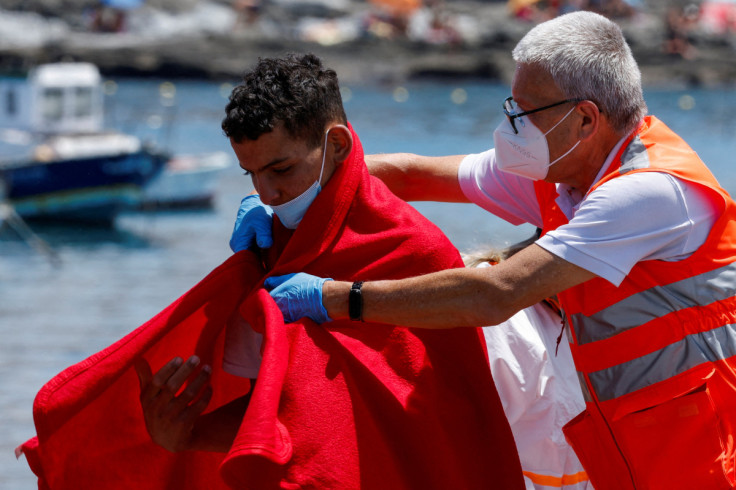Factbox-What's Inside EU Migration Deal, And What Lies Ahead

European Union ministers agreed this week on how to handle irregular arrivals of asylum-seekers and migrants, a deal hailed as a breakthrough after almost a decade of bitter feuds on the sensitive matter.
As the deal took shape, a stabbing in France by a Syrian man who was granted asylum in Sweden 10 years ago drew fresh attention to Europe's migration policies, highlighting political as well as practical challenges lying ahead of any EU migration scheme.
Here are details of the EU agreement, the main question marks and what comes next.
WHY DOES IT MATTER?
EU states have been trading blame over providing for the new arrivals since more than a million people - mostly fleeing the war in Syria - caught the bloc by surprise by reaching it across the Mediterranean in 2015.
The bloc has since tightened external borders and its asylum laws, and struck deals in the Middle East and North Africa to have more people stay there. U.N. data shows fewer than 160,000 sea migrants made to it Europe last year.
The bloc hopes lower irregular immigration would allow EU countries to restart cooperation to spread more evenly the task of taking care of arriving refugees and migrants.
HOW DOES THE NEW PACT ADDRESS THAT?
Each EU country would be assigned a share of the 30,000 people overall the bloc is expected to accommodate in its joint migration system at any given time.
That will be calculated based on the size of the country's GDP and population, the number of irregular border crossings including via sea rescue operations, and more.
Countries unwilling to take in people would instead be able to help their hosting peers through cash - at least 20,000 euros per person a year - equipment or personnel.
WHAT ELSE IS NEW?
The agreement would introduce a new expedited border procedure for those deemed unlikely to win asylum to prevent them from lingering inside the bloc for years.
Instead, they should be sent away within six months if their asylum applications fails, one of several shortened deadlines in the deal.
That mechanism would apply to all those deemed dangerous, uncooperative or coming from countries with low asylum recognition rates in the EU like India or Serbia.
EU countries could also apply the speedy procedure to people picked up in the sea, caught while trying to get in illegally or filing for asylum at the border rather than in advance.
WILL IT WORK IN PRACTICE?
Before eventually endorsing it, Italy and Greece voiced concerns about whether the new system would prove workable given some states' refusal to host people.
The southern countries of arrival worry about being overwhelmed, while those further away from the bloc's external borders tend to drag their feet on admitting arrivals and complex solidarity schemes take time to kick in.
Another challenge is keeping close tabs on the movements of people once they get inside Europe's zone of free travel.
WHAT OTHER ISSUES ARE THERE, AND WHO'S AGAINST?
Rights groups said the scheme risked reviving tragic scenes that unfolded on the Greek islands several years ago by creating more overcrowded migration camps on the edges of the EU.
They said the new plan could lead to protracted detention of minors and criticised it as focusing on keeping people away rather than helping those in need.
Criticism also came from Poland and Hungary, the EU's loudest voices against immigration from the Middle East and Africa.
Warsaw "will not pay for migration policy mistakes" by others, said Mateusz Morawiecki, the premier of Poland, which refuses to host any of the mainly-Muslim arrivals, though it has given shelter to millions of Ukrainians fleeing Russia's war.
WHAT COMES NEXT?
Opposition from Warsaw and Budapest did not, however, scupper the majority deal among the 27 EU countries. Spain will now lead more negotiations on behalf of the member states with the European Parliament starting next month.
Green members of the EU legislative denounced the deal as falling short on human rights. They might be joined in opposing it by political rivals from Poland's ruling Law and Justice (PiS) party, and Hungary's Fidesz.
But the deal is expected to eventually win enough backing, with the head of the chamber raising hopes for a final agreement before a bloc-wide election in 2024.
(Writing by Gabriela Baczynska, Editing by William Maclean)
© Copyright Thomson Reuters {{Year}}. All rights reserved.




















